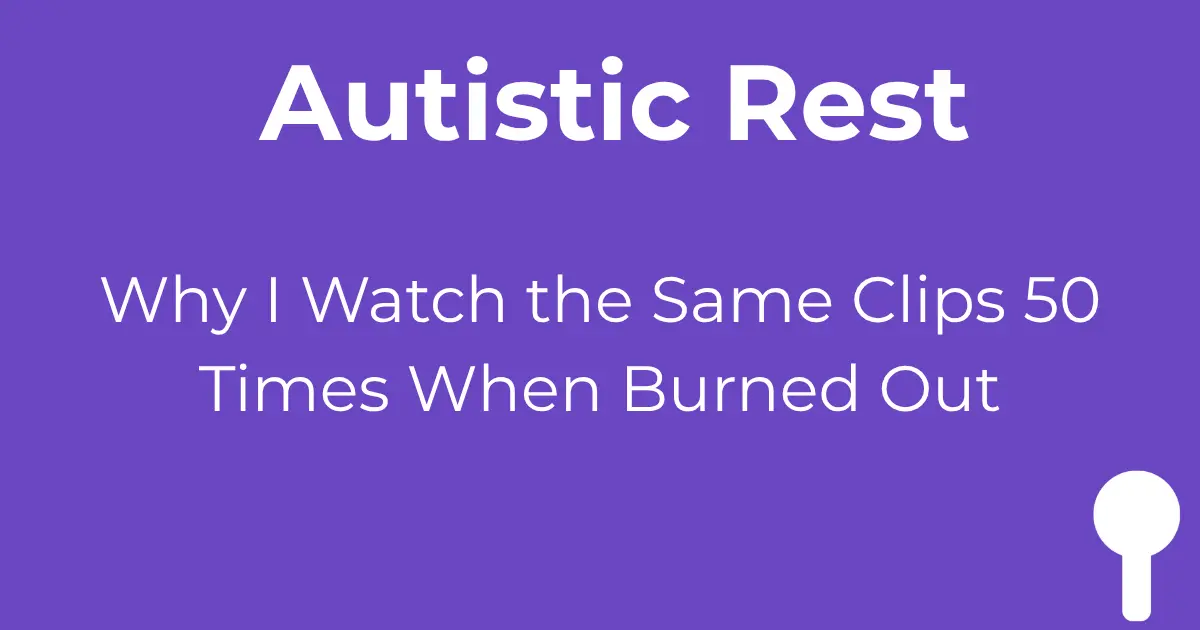
Why I Watch the Same Movie Clips Over and Over When I'm Burned Out
Puss in Boots: The Last Wish. The fight scenes between Death and Puss.
I loop them 30 to 50 times until my until I feel regulated again.
Why These Specific Clips
I find them familiar, predictable, and very engaging. I enjoy dynamic scenes a lot.
Knowing exactly what to expect next.
What makes it restful for me:
- Predictable (no surprises)
- Same volume / same timing
- I don’t have to make choices
- My brain can “idle” while still being engaged
The visual scenes, music, upcoming dialogue. I don't have to think about what may come next—nothing could be loud or startling. It's something I'm completely familiar with.
My brain can rest because nothing is surprising.
The Judgment
Yes, many times.
Sometimes it's clearly joking: "Wow, you seem to enjoy that movie a lot."
Most of the time with family members, it's met with weird looks and harsh criticism.
All for basically stimming—repetitive behaviors that help me regulate my nervous system. For me, watching the same clips is stimming. It's not weird, it's self-regulation.
The Other Thing I Do
Lying in bed in silence for an hour.
I do this on very low-energy days, like after warehouse work. I prefer no stimulation during that time. No bright screens. No texting friends. Just calm, peaceful, and predictable.
What Happens If I Don't Rest
My following day costs more energy Loud noises at work—alarms, people talking—are way more exhausting, despite expecting them.
Skipping rest compounds. One bad day becomes two.
This is how I prevent deeper autistic burnout. Without these regulation strategies, my warehouse shifts would push me from exhausted to completely nonfunctional.
The Advice That Doesn't Work
"Maybe get in touch with a friend?" "Take a walk outside." "It'll go away eventually."
It clearly doesn't without time for myself.
Their advice adds MORE stimulation when I need LESS.
Why This Actually Works
When I’m burned out, ‘fresh air’ and ‘socializing’ is more input. I recover by reducing input.
This is sensory regulation. I'm actively managing my sensory input to recover from sensory overload. Watching familiar clips or lying in silence aren't avoidance—they're regulation strategies that work for me.
Autistic rest = reduce stimulation completely.
Watching the same clip 50 times or lying in silence for an hour aren't weird. They're necessary.
I'm Omari, a 23-year-old autistic adult who's been managing chronic burnout for 5+ years while working warehouse shifts.
This is why I built Spoons. To track what drains me. To know when I need rest. To see patterns before burnout compounds.
Launching April 2026. getspoons.app - One email when it's ready. No spam.
— Omari
Note: I'm sharing my personal experience as an autistic adult, not medical advice. If you're experiencing severe burnout or crisis, please consult a healthcare provider familiar with autism.
